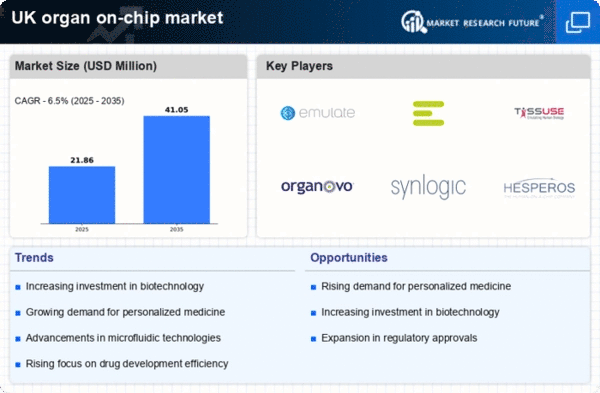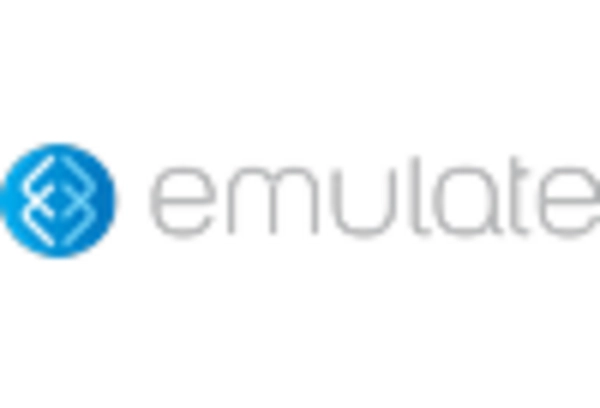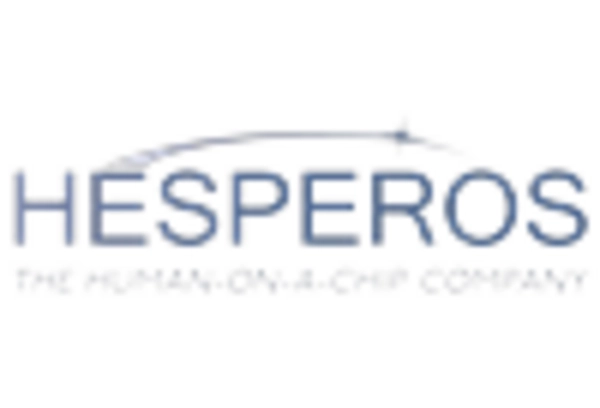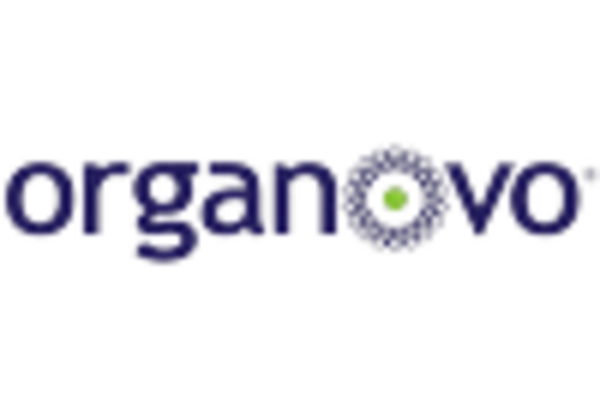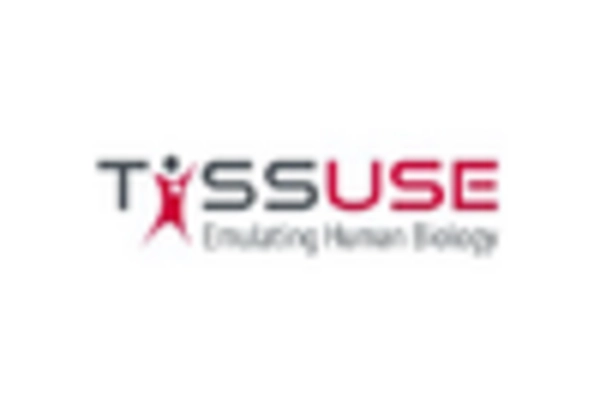Growing Awareness of Ethical Concerns
Ethical considerations surrounding animal testing are increasingly influencing the organ on-chip market. As public awareness of animal welfare issues rises, there is a growing demand for alternative testing methods that do not rely on animal models. The organ on-chip technology presents a viable solution, offering a more humane approach to drug testing and development. This shift in consumer sentiment is prompting pharmaceutical companies and research institutions in the UK to adopt organ-on-chip systems as part of their testing protocols. The organ on-chip market is likely to benefit from this trend, as stakeholders seek to align their practices with ethical standards. Furthermore, regulatory bodies are beginning to recognize the potential of these technologies, which may lead to more favorable guidelines and support for their adoption. This evolving landscape suggests a promising future for the organ on-chip market as it aligns with societal values.
Rising Demand for Personalized Medicine
The organ on-chip market is experiencing a notable surge in demand for personalized medicine solutions. As healthcare shifts towards tailored treatments, the need for advanced models that mimic human physiology becomes critical. This market driver is underscored by the increasing prevalence of chronic diseases in the UK, which necessitates innovative drug testing and development methods. The organ on-chip technology offers a promising alternative to traditional animal testing, providing more accurate predictions of human responses. According to recent estimates, the organ on-chip market is projected to grow at a CAGR of approximately 25% over the next five years, reflecting the growing interest in personalized therapeutic approaches. This trend indicates a significant opportunity for stakeholders in the organ on-chip market to develop solutions that cater to the specific needs of patients, thereby enhancing treatment efficacy and safety.
Increased Investment in Biotech Research
Investment in biotechnology research is a pivotal driver for the organ on-chip market. The UK government and private sector are increasingly allocating funds to support innovative research initiatives aimed at developing advanced organ-on-chip technologies. This influx of capital is expected to accelerate the development of sophisticated models that can replicate human organ functions more accurately. Recent reports suggest that the UK biotech sector has seen an investment increase of over £1 billion in the last year alone, with a significant portion directed towards organ-on-chip research. This financial backing not only fosters innovation but also encourages collaboration between academic institutions and industry players, thereby enhancing the overall growth of the organ on-chip market. As research progresses, the potential applications of these technologies in drug discovery and disease modeling are likely to expand, further driving market demand.
Advancements in Microfabrication Techniques
The organ on-chip market is being propelled by advancements in microfabrication techniques, which enable the creation of more complex and functional organ models. Innovations in materials science and engineering are allowing researchers to develop chips that closely mimic the architecture and functionality of human organs. These advancements are crucial for enhancing the predictive power of organ-on-chip systems in drug testing and disease modeling. As microfabrication technologies continue to evolve, the organ on-chip market is expected to expand, with new applications emerging in areas such as toxicology and regenerative medicine. The integration of these advanced techniques is likely to improve the reliability and reproducibility of organ-on-chip experiments, thereby attracting more researchers and companies to invest in this technology. This trend indicates a robust growth trajectory for the organ on-chip market in the coming years.
Regulatory Changes Favoring Innovative Technologies
Regulatory changes in the UK are increasingly favoring the adoption of innovative technologies, including organ-on-chip systems. As regulatory agencies recognize the limitations of traditional testing methods, there is a growing push towards integrating advanced technologies that can provide more reliable data. This shift is likely to create a more conducive environment for the organ on-chip market, as companies seek to comply with evolving regulations while enhancing their research capabilities. Recent initiatives by UK regulatory bodies to streamline approval processes for alternative testing methods suggest a positive outlook for the organ on-chip market. By facilitating the entry of these technologies into the market, regulatory changes may accelerate the development and commercialization of organ-on-chip solutions, ultimately benefiting both researchers and patients.


